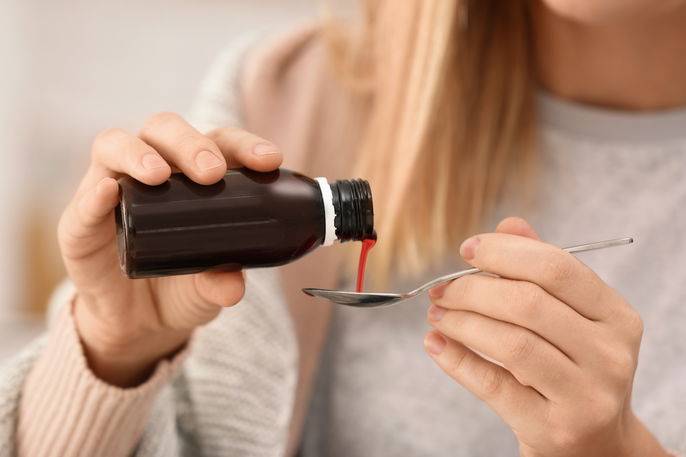What is it:
Hydroxyzine is an allergy medication used to treat skin irritations (like hives, atopic dermatitis or pruritis). It acts by blocking the effects of histamine, which is a substance involved in the body’s response to an allergy. It can help to relieve symptoms like itching, blisters or skin redness.
This medication can be found in pharmacies and is dispensed with a doctor’s prescription.
Hydroxyzine can be purchased in 25 mg pills, or in syrup with 2 mg/mL or 10mg/5ml strength. It should only be used as directed by your doctor.

Common uses
Hydroxyzine is prescribed for the treatment of skin irritations like:
- Atopic dermatitis
- Contact dermatitis
- Hives
- Itchy skin
Hydroxyzine can help relieve allergy-related symptoms like itching, irritation, blisters or redness. This medication will start to take effect after 20 to 30 minutes and lasts for up to 4 to 6 hours.
How to take & dosing
Hydroxyzine should be taken orally before or after a meal, at the times indicated on the prescription.
Dosing for hydroxyzine depends on the form prescribed, the patient’s age, and the condition it is treating.
1. Hydroxyzine 2mg/mL syrup
Hydroxyzine syrup is found in 120 mL bottles and contains a concentration of 2 mg/mL or 10 mg/mL.
Normal recommended doses of hydroxyzine syrup vary depending on age, and include:
- Adults: The normal recommended dose for adults is 12-5 mL of hydroxyzine syrup, 3 to 4 times per day (or every 6 to 8 hours).
- Children over 6 months: The normal recommended dose for children is 0.7 mg for every kilogram of weight, which is equal to 0.35 mL for each kg. It is taken 3 times per day (every 8 hours).
Hydroxyzine should be used by adults or children over 6 for a maximum of 10 days.
Hydroxyzine syrup should be measured with the syringe included in the package.
2. Hydroxyzine 25 mg pills
The recommended dose of hydroxyzine pills for adults in one 25 mg pill taken 3 to 4 times per day for a maximum of 10 days.
In some cases, the doctor may recommend a dose that is off-label.
Side effects
The most common side effects of hydroxyzine treatment include drowsiness or dry mouth. Patients are advised to avoid consuming alcohol or taking other medications can suppress the central nervous system, like analgesics, opioids and barbiturates while taking hydroxyzine, as these can increase drowsiness.
Although it is more rare, hydroxyzine can cause side effects that require immediate medical attention, like a rapid heat rate, headache, chest pain, tremors, agitation, dizziness, fainting or seizures. If you notice these symptoms, discontinue treatment immediately and proceed to the closest emergency room.
Does hydroxyzine cause drowsiness?
One of the most common side effects of this medication is drowsiness, therefore patients who take this medication may experience increased sleepiness.
Contraindications for use
Hydroxyzine should not be used by pregnant women, breastfeeding women, or patients with an allergy to any of the components in the pills or syrup.
In addition, hydroxyzine should only be used as prescribed, particularly in patients with a history of kidney failure, epilepsy, glaucome, asthma, emphysema, stomach ulcers, intestinal ulcers, hyperthyroidism, enlarged prostate, liver failure or Parkinson’s disease.
Hydroxyzine should not be used by babies under 6 months, and use in children should be monitored by a pediatrician.






























